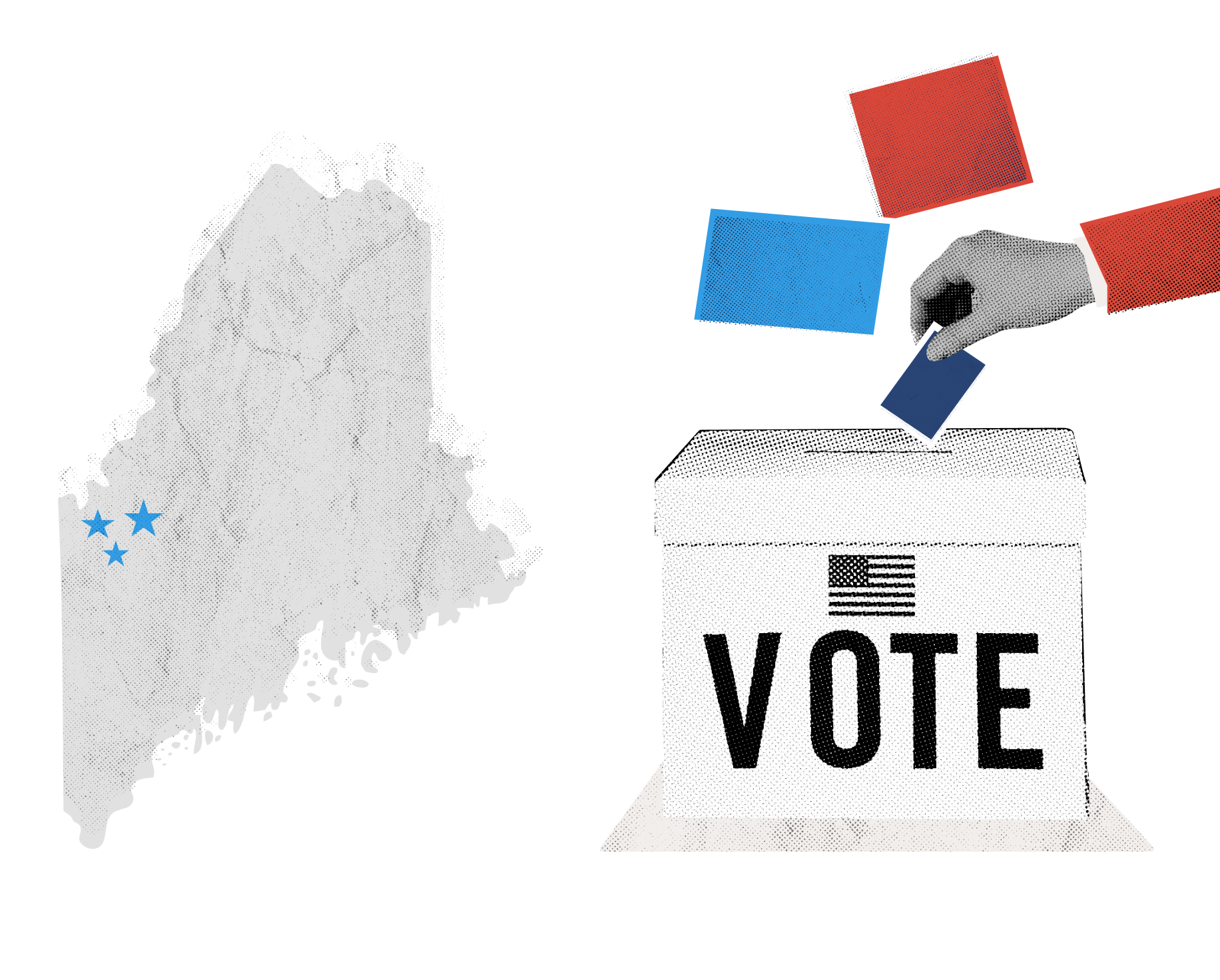
The Maine Legislature is considering a bill to expand the use of ranked choice voting (RCV) to general elections for state offices — building on the state’s reputation as a trailblazer for election reform. Maine was already the first state to use RCV in state and federal primary elections, federal general elections, and presidential primaries and general elections.
At Unite America, we believe that every voter should be able to cast a meaningful vote — one that actually helps determine the outcome of an election. While RCV alone is not a core part of how we measure meaningful votes, expanding its use could help create the conditions for more competitive elections — and, ultimately, more votes that matter.
What is a meaningful vote?
A meaningful vote is a vote that actually helps decide the outcome of an election. Right now, most elections in America don’t meet that bar. Just 14% of voters in 2024 cast a meaningful vote for the U.S. House of Representatives. Only 13% did so in their state house elections. Why? Because the vast majority of races are uncompetitive — and millions of voters are excluded from primaries where the real decisions are made.
The best way to increase the number of meaningful votes is to increase competition — and one proven way to do that is through open, all-candidate primaries. In states with these systems, voters can choose from all candidates, regardless of party, in a single primary — with the top finishers advancing to the general election. These systems not only give more voters a say, but also often result in multiple candidates from the same party appearing on the general election ballot, which leads to more competitive contests in the highest turnout election.
The average percentage of meaningful votes in the four states with all-candidate primaries was 26%, twice as high as the 45 states with partisan primaries (12%). Following Alaska’s adoption of all-candidate primaries, the state’s share of meaningful votes increased from 22% in 2020 to 35% in 2022 – a 58% increase in the share of meaningful votes.
Where does Maine’s new bill fit in?
A ranked choice voting bill like Maine’s is unlikely to directly impact the number of meaningful votes cast. But it can encourage more candidates to run — including independents and third-party candidates who may otherwise worry about “splitting the vote” and serving as “spoilers.” With RCV, voters can rank candidates in order of preference, so there's no penalty for voting for a less traditional candidate first. That reduces strategic voting and opens the door to increased candidate entry and greater voter participation.
In Maine, that dynamic could come into play very soon. The state has a long history of viable independent gubernatorial candidates. For example, U.S. Senator Angus King (I) served as the state’s governor from 1995-2003. The 2026 gubernatorial election could certainly include one or more strong independent candidates, and RCV would make it easier for those candidates to compete without being seen as spoilers. This would give voters a wider set of choices and raise the odds that the general election will be truly competitive.
In short, while RCV isn’t the hero of the meaningful vote story, it can be a strong supporting character; open, all-candidate primaries are the best way to increase meaningful votes. The bill under consideration in Maine has the potential to be a step in that direction. We’re watching with hope — and an eye toward what’s possible when reforms work together to put voters first.
Learn more about Maine’s Ranked Choice Voting expansion bill here.

Stay up-to-date on the latest news and resources from Unite America.